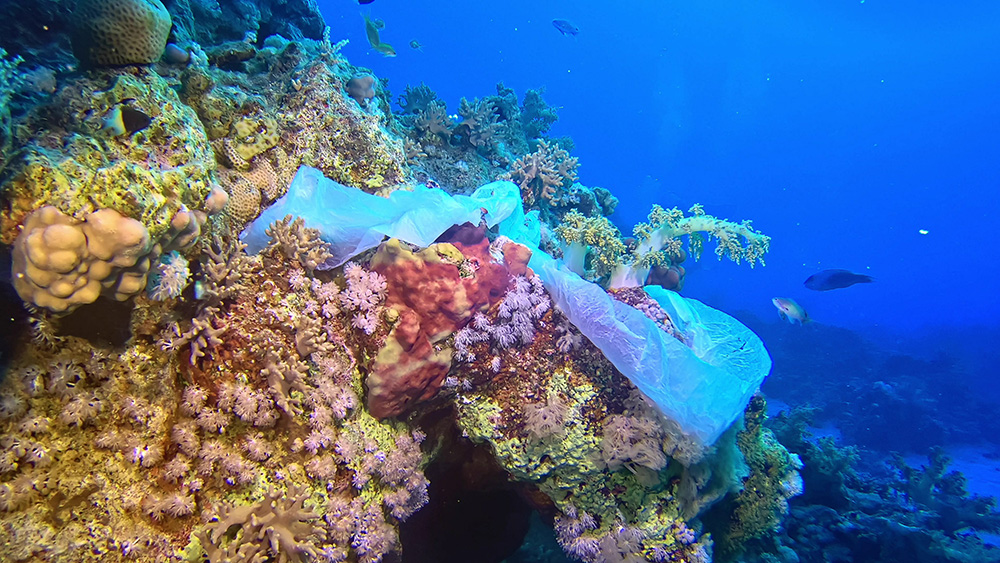News release
From:
Promotion of simple behaviours such as recycling plastic waste can lead to positive spill-over into a wider range of climate-related, sustainable behaviours, QUT researchers have found.
- Study on plastic pollution and Great Barrier Reef conservation
- Impactful action can be motivated by prompting spill-over effect
- Different audiences require varying messages
Professor Kerrie Wilson, from the QUT Centre for Environment, said there was some concern that performing ‘easy’ sustainable behaviours could allow people to become complacent that they were doing enough for the environment.
“For example, the banning of plastic bags could distract people from the fact that other pressing environmental issues, such as emissions, are being neglected,” Professor Wilson said.
“On the other hand, it could be that focusing on plastic may have a spill-over effect and act as a gateway for broader conservation action; our study aimed to address this gap in our knowledge.”
Professor Wilson said most Australians were aware that climate change was one of the greatest threats to the Great Barrier Reef’s survival.
“Yet, when it comes to taking action for the reef, people tend to consider plastic-reduction behaviours rather than adopt big-picture measures to reduce greenhouse gas emissions,” she said.
“We investigated whether small environmental actions could lead to wider climate actions using a technique called ‘priming’.
“Priming comes from a growing body of evidence that if a person’s past positive actions (in this case past environmental actions, no matter how small) are acknowledged, it can prompt a spill-over into wider, more impactful climate change actions.
The team, comprising Professor Wilson, Yolanda Waters and Dr Angela Dean, surveyed a representative sample of Australians on 11 common plastic-related behaviours they may have done in the past week.
“Participants who selected from the options received a message to acknowledge past positive actions – ‘Great! You already find it easy to reduce your impact’ and were shown information on plastic pollution and the Great Barrier Reef and the slogan ‘Save the reef. Say no to plastic’.”
A second group, after completing the survey, were given information about climate change and the Great Barrier Reef with the call to action ‘together we can protect the reef’.
“We followed up with questions on their intention to do a number of climate behaviours and on their actual behaviour to support climate change mitigation.”
Professor Wilson said the second part of the study tested these messages on ‘already engaged’ participants, 90 per cent of whom had visited the reef and 68 per cent who had had some experience in marine biology or marine conservation.
“Our results show that plastic messages and broader marine plastic campaigns could motivate wider action on climate change.
“We found those who received the messages about plastic pollution and GBR showed greater climate intention and behaviour than those who did not, particularly if past behaviour was made salient.
“However, the same experiment with the ‘already engaged’ group found that acknowledging past behaviour had no effect, indicating the potential for positive or negative spill-over may vary with different audiences.
“Of note we found plastic messaging was particularly effective in political conservatives, suggesting it could be useful in cutting through political polarisation on climate change.”
Plastic action or distraction? Marine plastic campaigns influence public engagement with climate change in both general and engaged audiences was published in Marine Policy.



 Australia; QLD
Australia; QLD



